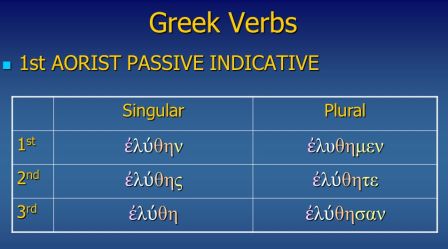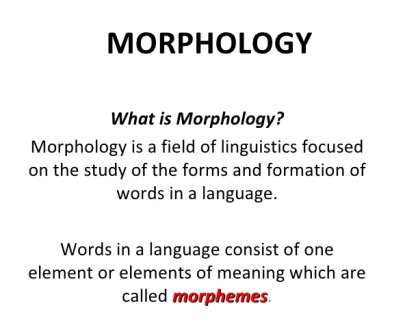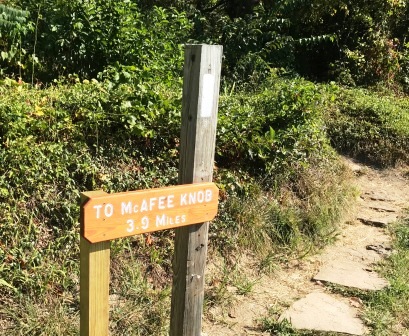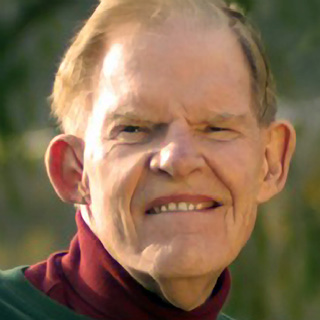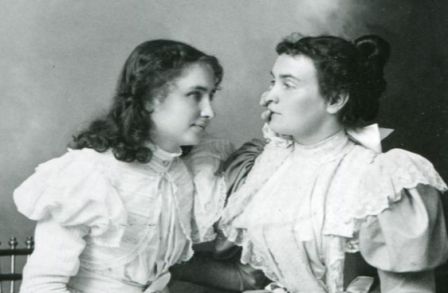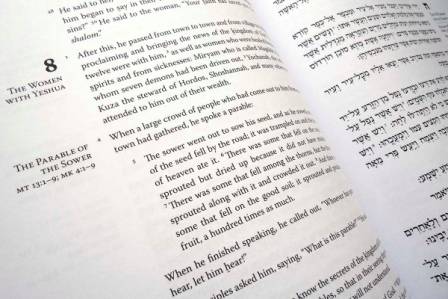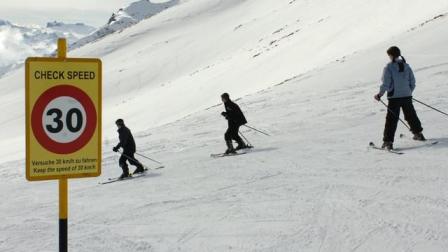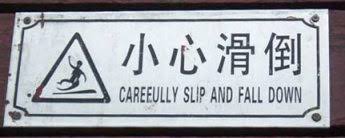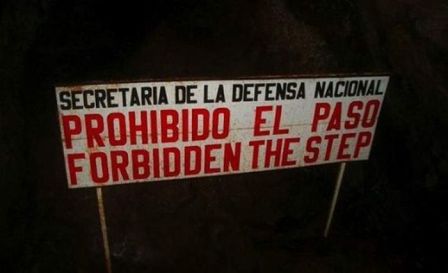October-June 2017 Blog Archives
|
|
|
||||||||
|
January 2019 Blog Archives Thursday, January 31 7:04 PM A year ago I did this Via Ferrata climb in West Virginia.
You should try it. One can never have too many fun challenges in life. This was only the second Via Ferrata I've done, the first being in the Alps in 2016. It took me about 3 hours to finish. I'm not great at vertical rock climbing but quitting is never an option. I enjoy challenging myself physically and mentally. I have a dream of doing this into my 80s. If I get enough recovery and rest days, I just might be able to. P.S. I hired a mountain guide through NROCKS Outdoor Adventures. I'm sure glad I did. They were great. 12:10 PM Hey folks. Just helped Nate and Jess load the hay trailer.
Before that I had a great workout at the gym. Right now I'm washing and ironing my clothes. Then it's Chinese stir fry for lunch. I might get a run in this afternoon if it gets over 30 degrees. Trust me, I need the exercise. 6:55 AM Odds and ends .... 1) My thanks to Stan, Stephen, Randall, Thomas, Mike, Rob, Con, Jonathan, Michael, Nicholas, and Steven for their willingness to participate in our April conference and open several cans of worms at once. Incidentally, the conference fee goes up tomorrow (from $50.00 to $75.00), so register today. 2) Shout out to my hardworking Greek 2 students. This week they finished the indicative mood. Next week we'll have a thorough review. Then it's on to the participle, infinitive, subjunctive, imperative, etc. One of my three sections of Greek 2 taking their weekly quiz.
3) My training stats for January:
Not exactly earth shattering, I know. But praise the Lord, I still managed to get in over 100 hours. I wanted to run today but it's too cold outside. So the Y will have to do. 4) Lord willing, a week from tomorrow I fly to Phoenix. My cynosure right now is the marathon there. I'm using this time as an excuse to eat. Which is fine as long as you maintain a proper ratio (protein/carbs/fat). While there, I'm scheduled to speak here:
And here:
Really looking forward to getting back to the desert of Arizona. My hugest, biggest, most gignormous goal for the marathon? To return home healthy and injury free. 5) Quote of the day (Peter Gurry):
6) Lunch yesterday with two of the best encouragers you'll ever meet.
That's it for now. I'm a schedule kind of guy, and on my schedule right now is to eat breakfast and then get in a workout. After that, who knows. In the meantime, I'm setting manageable life goals and working my tail off to achieve them. One of those is to tell at least one person each day what I appreciate about them. Another is to not sweat the small stuff in life. What are your goals for 2019? Monday, January 28 6:10 AM I woke up this morning to the soft lowing of the neighbor's cattle. I can't translate "moo" into English, but it sounded to me like a mama was looking for her baby. That's right. Mama cows and their babies can recognize each other's voices. I thought to myself, "God's creation sure is full of wonderful surprises." Birds communicate through calls and songs. Foxes have 20 different vocalizations. A gibbon's system of communication has 3 subsystems, one for signaling danger on the ground, another for signaling danger in the sky, and a third for signaling danger in a tree. The animal kingdom turns out to be a noisy place indeed. Just ask my donkeys, who bray every time they see me with a carrot in my hand. We humans have roughly 6,500 spoken languages. (The most widely-spoken is Mandarin Chinese.) I happen to teach one of those languages, and this week will be a watershed in my classes because we will finish the entire active voice in the indicative verb. That's right: unlike most Greek classes, we cover the entire indicative mood before touching any of other moods in Greek. We also cover the entire active verb before dabbling in the middle and passive. We study the second declension before the first declension because it's easier and because most New Testament nouns belong to the second declension. Make sense? This week we've only got one new morpheme to learn. I call it the passive voice morpheme and it's marked in dark yellow in the paradigm below:
Let's look at the first person plural form, eluthēmen. This word has four morphemes (just like "unfriendliness" is comprised of un, friend, li, and ness).
Hence the translation, "We were loosed." Easy cheesy! The one thing my beginning students must absolutely come to grips with is the fact that the word is not the minimal unit of meaning in language. The morpheme is. That's why I think it's valuable to teach basic morphology even in a beginning Greek class. I find that when you understand how something works, it stays with you longer. When I was trying to learn Mandarin a few years ago, I was told "Ni hau ma" meant "How are you?" Okay. Got it. But the way my mind works, I wanted to know what every word/morpheme in that sentence meant. And here's what I learned:
"You good?" This became very helpful to me when I encountered the word "good" (hau) in other contexts. If you're learning Spanish, breaking a word down into its morphemes can be very helpful. For example, nouns that end in -dad tend to be feminine (e.g., felicidad). In German, on the other hand, feminine nouns tend to end in -heit, -keit, -schaft, and -tät. Of course, German nouns resist being grouped into neat little categories. Still, patterns do emerge.
Ditto for Greek nouns. For example, the case-number suffix -os is frequently masculine in Greek (as in nomos, Christos, apostolos), but hodos and erēmos are feminine. That's why it's vital to learn the article (the word "the") with every noun you're learning in Greek so that you can tell its gender (ho nomos versus hē hodos). When speaking German, I sometimes have to think about a noun's gender before saying it. That never stops me, of course, from conversing in the language. After all, I've got a one-in-three chance of getting it right. I tell my students who are learning French or German for their doctoral programs: Learn to speak, not just read, the language. Sure, you'll make plenty of mistakes. But you'll learn from your mistakes (Germans are happy to help you out and correct your grammar). Who knows, maybe in time German nouns will become standardized (as they are in English) and grammatical gender will become a thing of the past. Until then, be sure to learn the gender of your nouns. And never forget your morphology!
Sunday, January 27 1:45 PM Been a great day so far. Church. Grocery shopping. And a nice long walk on the Ringgold Rail Trail -- a 25-acre trail system built on an abandoned railroad bed.
A red caboose sits at the western end of the trail.
I had to drive about 45 minutes west on Hwy. 58 to get there. As you can see, the trail was real crowded today.
I used to bike this trail, but that was a few years ago. Today I noticed several improvements. One is that the trail now has mile markers.
Another are these historical markers every mile or so.
Be aware that parts of the trail are in disrepair owing to the major flooding we had last year in Southern Virginia. This was an especially bad part of the trail.
Otherwise, we're talking about a safe, seamless, and scenic pathway through some of the most beautiful parts of Virginia.
There's only 13 days left until Phoenix and I've got to keep putting miles on these old legs of mine if I want to do well in the marathon. I plan to do 60 miles of training this week, including walking, biking, and running. Not bad for a skinny kid from Hawaii who used to do no exercise at all except for surfing.
Wish me well! 6:10 AM Good day to you, fellow Jesus freaks. My study this morning was in Gal. 5:16-25, "The Works of the Flesh Versus the Fruit of the Spirit."
Here in Galatians, Paul has been teaching Christian liberty. But he's aware of the tendency to exchange true liberty either for legalism (5:1) or for license (5:13). The question is: How can we avoid fleshly living? And the answer is the Holy Spirit, who enables us both to fulfill the Law of God on the one hand and who causes the fruit of righteousness to grow in our lives on the other. When Paul refers to the "lusts of the flesh," he's not referring to sexual sins alone. Here "flesh" refers to the fallen and rebellious sin nature we inherited from Adam that is perpetually antagonistic toward the Holy Spirit. Paul then lists the "works of the flesh." I might paraphrase them as follows:
The nine-fold fruit of the Spirit then follows. What struck me today was the non-inclusion in most of our English versions of the word I translated "murderous" in my above translation. The word is spelled phonoi in Greek. The word just before it is spelled very similarly: phthonoi. So the question is: Was "murderous" part of the original/initial text of the New Testament or not? I think most New Testament scholars would answer no. One author writes:
You'll notice that the reasoning here seems to be based mostly on what scholars call internal evidence, that is, matters having to do what a scribe would more likely have done with the text. But we also have to look at the so-called external evidence, that is, the evidence provided for us by the Greek manuscripts, the ancient versions (e.g., Latin, Coptic, and Syriac), and the early church fathers. And here, it seems to me, the preponderance of the evidence clearly favors the inclusion of the disputed word phonoi, unless one is inclined to automatically follow the early majuscules Aleph and B. As for the internal evidence, the omission of phonoi can probably best be accounted for by what scholars call parablepsis -- a jump from one set of letters to similar (or identical) letters further along in the text.
So why am I mentioning this? For two reasons. In the first place, we'll be discussing the art and science of textual criticism in all of my classes this semester. As we can see here in Gal. 5:21, this step in exegesis can't be avoided if we are to teach the Word with integrity and credibility. Secondly, I think that this verse is a good example of the two basic approaches to textual criticism among evangelicals today. On the one hand, we can speak of the Alexandrian Priority view. This is the approach followed in the standard Greek New Testaments in use today, including the UBS5 and the NA28. (Here I would also include the new Tyndale House Greek New Testament since its text is largely the same as the text found in the standard texts.) On the other hand, we have what might be called the Byzantine Priority view, one of the chief defenders of which is my colleague Maurice Robinson. You'll notice that here in Gal. 5:21, the shorter reading is an Alexandrian reading, whereas the longer reading is a Byzantine reading. There's a third view I'll expose my students to, since it happens to be my own. I'm not persuaded that we should follow either the Alexandrian text or the Byzantine when deciding between variant readings. I tend to move more in the Sturz circle. Harry Sturz was my teacher and eventually my colleague in the Greek Department at Biola. (You can read about Harry Sturz here.) He believed that both the Alexandrian text and the Byzantine text pushed into the second century, arguing that the latter text was unedited in the Westcott-Hort sense. He therefore preferred the reading that was the more geographically widespread. Moreover, he often found that the Byzantine text least often stood alone. It usually sided with the Western text against the Alexandrian text, or else it sided with the Alexandrian text against the Western. Gal. 5:21 is a good example of this. Personally, I don't prefer the longer reading here because it's supported by the Byzantine text per se. In other words, I am not a Byzantine priorist. It's the consensus of witnesses -- the Greek manuscripts, the ancient versions, and the patristic evidence -- that has me convinced that the longer reading is probably the original/initial text. The key question (or at least a key question) today, therefore, is this: How shall we treat the Byzantine text? And that question will occupy a good deal of our time in Greek class this semester. I hope you'll follow our discussion on this blog in the coming months. In the meantime, here's one of the Power Points I'll be using in class. I hope you find it interesting. P.S. Southern Seminary's Rob Plummer, who is one of the speakers at our linguistics conference in April, has posted an excellent review of the new Tyndale House Greek New Testament. I hope you'll watch it. Rob recommends that you acquire this Greek text and use it alongside your UBS/NA Greek New Testament. Also, Dirk Jongkind's An Introduction to the Greek New Testament: Produced at Tyndale House, Cambridge will prove to be extremely helpful when it's published in May. (I just wrote a strong endorsement of the book for Crossway.) Saturday, January 26 6:12 PM It was 7:00 am this morning. I needed to make up my mind. I had paid good money to compete in today's 5-mile trail run. Would I cash in on it? Good grief. The morning was freezing. "Don't think, Dave. Just do it." So I drank the Kool-Aid and figured, "Why not just go for it?" I made it to the race venue about 10 minutes before the 9:00 am race time. I found myself surrounded by a bunch of ridiculously fit people telling stories of their races. Then we were off.
I said to myself, "I'm not nearly as experienced as these guys but that's not going to hold me back. I'll run as hard as I can." Did I say "run"? How about slip, slide, slosh, slither, skid, and slink. I finally got into a rhythm at about mile 2, where I fell in behind some 30-somethings who paced me to the finish.
By having them do the pacing and me the running, I could keep my eyes on the trail without having to find every odd turn as the course meandered through the forest. The last mile was brutal. But finally, the finish.
Truth be told, I'm kinda glad the trail was muddy.
I'm trying to learn to take whatever the course throws at me. Still, it's really hard climbing on a single track with tons of people. You're either passing or being passed, sometimes by the same runners. But I'm so thankful that I finished the race without any major incidents (or accidents). Once I left the house this morning, I knew I would push through to the end. It's my temperament, I guess. The most important thing was to keep moving forward without losing your concentration. So, another race in the books. Thanks for joining me, you guys. Now go and sign up for a trail run near you. P.S. Finishing times out of 195 runners:
6:44 AM This week in NT 1 (my Gospels class) we're slated to begin our discussion of New Testament Christology as a subset of the doctrine of the Trinity (or, better, "Trinunity," German: Dreieinigkeit; Korean: sam-wi ilche).
I'll begin with a question: Is our theology balanced? Specifically, if we have a doctrine of the Son (Christology), and if we have a doctrine of the Spirit (Pneumatology), why isn't there a doctrine of the Father? We can't use the word Patrology because that term is used for the study of the church fathers. Some have suggested "Paterology." I like that term even though it really doesn't work because the formation needs to be based on the genitive (not nominative) of patēr. Nomenclature aside, I propose that we stop viewing Paterology as an afterthought. It deserves a category of its own instead of being subsumed under "Theology Proper." Here's one attempt to do just that. I think it's a very interesting approach. P.S. I love this quote from Bonhoeffer:
6:20 AM Martin Luther:
I can think of nothing truer. Its meaning is unpacked here. So this is my dream for my students. Follow God, not man. Serve others sacrificially. That's about it. If you follow God and His word and love and serve other people in His name, everything else will fall into place. Students, I believe in you. I am so excited to watch how God will use you this semester. When I am 90 years old I will look back on my teaching years and say, "I had such a good time." 6:12 AM My favorite rendition of this great worship song.
The story behind it is unbelievable. Dear kids. You're missing out on so much. Music like this comes around only once every century. I hope you will rediscover it. Friday, January 25 7:22 PM Hmm ... ya think my toenails need clipping?
Yes, this is the look all professional athletes aspire to have. My toes never cease to amaze me. Earlier, I had a short 10-mile bike ride.
I stopped after getting nearly frostbitten and hypothermic. I have better things to do than freeze to death. Still not sure about whether or not I will run 5 miles around Lake Harris tomorrow morning. The race director emailed me today to say the race was a cross between a mudder and a trail run. At least he's being honest. There are some things I don't like, and one of them is slipping on a trail. Here's a few others:
I'll stop there lest you think I dislike more than I like. If I do head down to Raleigh tomorrow I plan to stop by the REI store in North Hills to try on a pair of new climbing boots for the Alps this summer. A guy named Nick talked me into it on the phone today. He promises me that he has something for my 13-wide boot size. I'll believe it when I see it. I am becoming really picky about what I put on my feet now that I'm a runner. At 66, I know my body pretty well. I've learned that if your feet aren't happy, nothing is. In the meantime, time to wind down and get a good night's sleep. 7:20 AM Up early this morning reveling in the Word. Thank you, Greek New Testament. Your ability to excite and convict takes my breath away, literally. If we were having coffee together this morning, here's what I'd share with you based on my morning meditations. Steve Runge, in his outstanding work Discourse Grammar of the Greek New Testament, has a chapter titled "Metacomments." "Metacomments look forward to what is coming," he writes, "commenting on it in a way that does not substantially contribute to its propositional content." His first example is Rom. 12:1-2. Here Paul could have commanded his readers as follows: "Present your bodies as living sacrifices," omitting the preceding metacomment, "I urge you, therefore, on the basis of the mercies of God ...." Instead, Paul chose to use a mitigated form of command, as if to say, "Look, because God has been so merciful to you, you should, in response, present your bodies as living sacrifices to Him. Make sense?" The appeal seems to be directed more to his readers' mind/logic/reason than to their will. I've noticed this kind of mitigation throughout Paul's writings, but especially in Rom. 12:9-21. Notice how often the Greek imperative mood (in red) is mitigated by the imperatival use of adjectives (green), participles (blue), and even infinitives (yellow):
Let's take a closer look. At first, Paul doesn't use a single verb in the imperative mood, and yet each of his propositions has an imperatival force: "Love must be sincere ... Abhor what is evil ... Cling to what is good ..., etc."
All this changes in verse 14. Here we find Paul's first explicit commands (red), and we even find the infinitive mood being used imperatively (yellow), along with imperatival participles (blue):
Finally, Paul ends the chapter with the use of direct commands (red):
What should we make of these mitigated commands? And how can we indicate their significance in English? Neva Miller once suggested that the adjectives and participles in this passage contain the idea of "You should." That is, Paul is appealing to his readers' sense of logic. The infinitives, on the other hand, appeal to his readers' sense of moral duty or obligation: "It is necessary to ...." And finally, Paul uses the imperative mood per se when he wants to appeal to his readers' volition. Logic, duty, volition -- it's all here. Neva came up with a fabulous means of expressing these distinctions in English. See if you don't agree.
Now here is what struck me. Once again we see that Paul is keen on coupling doctrine with duty, belief with behavior, creed with conduct. He insists on the practical implications of his theology. Without doubt, the theme of "love" dominates this passage. "Your love for one another must be genuine," says Paul. Yet, ironically, the very first thing that love involves is hatred. Love abhors every kind of evil and clings like glue to every form of goodness. It's a great mistake to suppose that we can walk in love, actively and purposefully, without first crucifying everything we know to be sinful in our lives. We must take our old sinful nature, with its lusts and desires, and nail it to the cross. In the words of Jesus, we must take up our cross daily. If there is a secret to loving one another unhypocritically, it's the decisiveness of our repentance. And so we must repudiate, daily, what we know to be wrong in order that we might be able to love other people as we should. Our task is to take time each day to tell the flesh, "You are crucified; you are nailed to the cross where you belong," and to tell the Lord, "I belong to You; Your Spirit indwells me, and so I shall this very day set my mind on the things of Your Spirit and walk according to His rule from moment to moment." Well, that was my main takeaway from my time in the Word this morning. (Sorry it took me so long to get to my point). To love sincerely, we must forsake all of our other "loves." It won't be easy. (See also 1 John 2:15-17.) But it's a choice that true love demands that we make. P.S. In case you're interested, my Power Point on Rom. 12:9-21 can be found here. P.P.S. The day is absolutely gorgeous. Hope to get in a long bike today. P.P.P.S. Steve Runge, whom I quoted earlier, will be one our speakers at our linguistics conference. Why not come and hear him in person? Thursday, January 24 12:42 PM To run or not to run. That is the question. This Saturday's 5-mile UGTB Trail Run at Lake Harris takes you along the lake shore through a variety of habitats including pine stands and oak hardwoods. I know how tough this course is because I ran it 2 years ago in good weather. The winning time was 33:54. The last place finisher clocked in at 1:24:40. My time was 1:03:56. This year the conditions will be wet and soggy. The race will require sacrifice from every runner. There will be risks. No one is guaranteed not to fall or stumble or grow weary. In other words, the race will be a lot like life. But off we go because we weren't made to stand still. We were created to run, each one of us. When I ran this race 2 years ago I felt lost. The course meanders and unless you're familiar with it you can forget covering the distance at any speed. Thankfully, about 2 miles into the race I fell in behind a guy in his 40s who had competed on the course several times. He paced me the rest of the way and we finished side by side. I realized how important it is in life to have a coach, especially when you're facing new challenges. There's only 16 days before the Phoenix Marathon and I could use some trail running to complement my running on asphalt and crushed gravel. I hate to trot out another tired cliché, but I'm just going to listen to my body and my common sense and make my decision tomorrow night. Earlier today I saw my dental hygienist and then cranked out a 1-hour workout at the Y. Tomorrow the sun is supposed to shine again and I'm hoping against hope to be able to get in another long bike. Right now I'm voting "yes" for Saturday's race, but if the conditions are too wet I'll probably stay at home since I really can't afford to sprain an ankle (or worse) less than 2 weeks before Phoenix. So it's all a bit unclear. 7:55 AM Language lovers, gather 'round. Let's have a little fun in the text this rainy morning, shall we? Look at how the Hebrew New Testament translates Matt. 28:20. Instead of "I am with you always" it has "I am with you all the days." Look at the bottom line.
I'm impressed. That's exactly what the Greek has.
Of course, when I memorized the Great Commission, I memorized "I am with you always." But when I did the base translation for the ISV New Testament, I demurred. It puzzled me why the English versions had "always" when the Greek had "all the days." Could it be because "all the days" isn't an English idiom? That's possible. Or perhaps the Greek pantote and the Greek pasas tas hēmeras were considered synonymous (and they may well be). On the other hand, check out these versions: French:
German:
Latin:
Portuguese:
Spanish:
So in the ISV, we ended up going with the English idiom "each and every day."
There's something so "daily" about the Christian life, isn't there? It's easier, I think, to meet God on the mountain top or in our extremity, but it takes a lot of grace to handle the ordinary, day-by-day grind of life. Perhaps that's why the New Testament has a lot to say about the "daily." Jesus calls us to take up our cross daily. The earliest believers met daily as a group in the temple. The Lord added daily to their number. Paul said, "I die daily." We are called upon to exhort each other daily. Our prayer is "Give us today our daily bread." And, as we see in our text, Jesus promises to be with us "all the days" -- day after day after monotonous day. I don't know about you, but I need God's grace daily. There is meaning in the mundane, folks, and grace for the grind. I'm grinning right now. Hope you are too. Wednesday, January 23 6:36 PM I'm not sure I know why I'm feeling so tired tonight except for maybe the fact that I taught three classes back to back (almost) and had constant meetings on campus. By far the best part of my time on campus was meeting new students, or at least students I hadn't had in class before. Welcoming new students during convocation.
Overall, it's been a great two days at school and a reminder that:
I know I'm spoiled. But really, I am. It's all grace, of course -- nothing but undeserved blessings from the hand of the Giver of all gifts. If ever there was a time to be excited about teaching, it's today. Students are open and questioning and challenging and kindhearted and just plain super. Yes, my work may get tiring sometimes, but it's the price you pay for doing what you love. P.S. These were on my desk when I arrived at the office yesterday.
I can't thank my good friend Jesús Peláez (of Córdoba, Spain) enough for sending me his new book on lexicography. Andrew Bowden was the translator. Andrew is my former personal assistant. Right now he's in Germany getting his Ph.D. in New Testament. So grateful for the work you are doing, Andy. Off to read a good book and then sleep for 10 hours. Tuesday, January 22 6:10 AM Let me tell you why I teach Greek. It's simply this. God has a plan for individuals. And He's communicated this plan to us in His Word. Our God is a communicative God, and He has made known His will to us through those who penned the Scriptures. Biblical truth is just that: truth that is communicated in and through the Bible. It's truth that is at once "inspired by God" and "profitable for teaching, for reproof, for correction, and for training in righteousness, so that the man [and woman] of God may be complete, equipped for every good work." What all this implies is that if we are to move from the classroom to real life we will have to prize what we learn and view it as a life skill and not merely as an educational attainment. Of course, this isn't easy. Almost all of us feel tremendous ambivalence as we wrestle with the question of just how to apply what we learn in the classroom to the real world. Yes, knowledge of Greek is essential if we are to have a firm foundation upon which to build our exegesis of the New Testament. On the other hand, I must say forcefully that facts, no matter how brilliantly taught or diligently acquired, are nothing more than the raw building blocks of life. How we put them together, and for what use (and whose glory), is another matter altogether. It will be an exciting week in Greek 2: the aorist middle plus the imperfect middle/passive. I'm convinced that my calling in life is not to be just a Greek teacher (or even a just Greek teacher) but to be a Christian. In that spirit, I'm praying hard for my Greek students. Theirs is a daunting task, but God is able! Monday, January 21 6:55 PM I finally got in my 5-mile run tonight even though it was freezing. An undershirt and four layers did the trick, however. But just barely. Spring is just around the corner, right?Sometimes I don't feel like running, but not today. The sun was shining, my Garmin was charged, the animals were scattering hither thither and yon, and I knew I needed to get in a good run if I was going to compete in a 5-mile trail run in Raleigh this Saturday.
If only I could lay my grubby hands on that groundhog or his shadow! 12:24 PM Tomorrow the new semester kicks off with convocation and my first class. Today I was able to get to the Y (yes, it was open) for a workout. Afterwards I planned on running but it was too cold (20 degrees). Yes, I wimped out again. Maybe I'll try again when we reach today's expected high of 29. Earlier I spent an hour or so at Bojangles sipping coffee and working on a lecture over Matthew. God in His providence has given us a fourfold portrait of Jesus. There's still only one Jesus, but He's viewed from 4 different angles. There's one fabulous diamond with four brilliant facets, one person with four faces. This is why "Redaction Criticism" is so very valuable. It helps us to see that the authors of the Gospels weren't merely compilers or biographers or diarists. They were theologians in their own right. Each had their own theological emphasis they wanted to convey. So we had better ask ourselves, "What are the particular emphases of the four Gospels?" For Matthew, the key word seems to be "fulfillment." Matthew portrays Jesus as the personal embodiment of centuries of Old Testament expectations. Rather than destroying the Law and the Prophets, Jesus brings them to completion and fulfillment in Himself. Matthew has meditated long and hard on the life of Jesus on the one hand and the Old Testament Scriptures on the other. And he has found a remarkable correspondence between the two. Jesus didn't see Himself as another prophet. He presented Himself as the fulfillment of all the prophets. That's one reason Matthew is placed first in the New Testament canon. Matthew forms an indispensable bridge between the Old Testament and the New. That's why we can never unhitch the Old Testament from the New Testament. If you don't understand the Old Testament, you don't understand the Scriptures, and if you don't understand the Scriptures, you will never understand who Jesus is. It's as simple as that. Thus Matthew traces Jesus back to Abraham, the father of the Jewish nation. As the seed of Abraham, Jesus is the one through whom God's promises to Abraham and his seed come to be fulfilled. The Old Testament is the story of the covenant family of God. And Matthew insists that Jesus is the seed of Abraham -- the posterity of Abraham -- in whose person God's promises are fulfilled. The real descendents of Abraham, therefore, are those who share his faith, including the Gentiles as well as the Jews -- people like the Magi who came to Jesus and offered Him their worship as harbingers of millions of Gentiles like ourselves who are the children of Abraham by faith and not by blood. And through the Gospel, God's kingdom of shalom is on the move, day by day. For the sake of this Gospel, I'm praying that Jesus might get hold of my students as never before. We are on a mission together, men and women, young and old, Republicans and Democrats, homeschoolers and government schoolers, joining in God's great rescue mission. Our misguided hierarchies have no place in this kingdom. If the Sovereign Redeemer is moving in a downward path, then we must move in the same direction. "Aslan is on the move," wrote C. S. Lewis. Won't we join Him?
Sunday, January 20 6:42 PM I feel pretty good about my mileage for the week.
Never mind. Who am I kidding? This is peanuts compared to most of the runners I know. Still, my workouts ran me into the ground today, or least into my bed for a nice long nap. So I took the day off from any form of exercise whosoever save for my mandible. Right now I'm watching the blood wolf moon rise. The real fun starts at 10:00 pm. It's already too cold to sit outside so Sheba and I are enjoying the view from the library window. She hasn't started howling yet but I expect her to begin any minute now. 1:28 PM This and that .... 1) I get tons of questions from my readers, but no topic comes up more frequently than questions about textual criticism. Probably because I'm no expert on the subject, nobody hangs on my words. Occasionally I'll drag you, my reader, into a conversation I'm having in my own mind, like this one: "Why in the world would the editors of my Greek New Testament make a chapter break here of all places?"
The French call these mots crochets (or something like that). Having all that white space, plus a new chapter number, kind of ruins the connection, don't you think? While we're in John 2 (where we were in this morning's sermon at church), I noticed something I had never seen before, and that is Mary's command to the servants at the wedding at Cana: "Do whatever He tells you." I said to myself, "Self, this is the entire Christian life in a nutshell. You just do whatever Jesus tell you to do. You go wherever He tells you to go. You say whatever He tells you to say." I've read John 2 a billion times but that statement of Mary never struck me before. If Jesus says it, why in the world would we not want to do it anyway? 2) What an eerie photo I took this morning.
It's certainly not your normal sunrise picture. I think the sky was in a funk today, not knowing whether to rain or to clear up. And sure enough -- it started to rain not long after I snapped this picture, and then the day cleared up beautifully. Which is a reminder that the weather in Virginia is bonkers. We've had tornadoes, winter storms, tropical cyclones, torrential rains, nor'easters, and even an earthquake. One day it's warm and pleasant, and the next day it's freezing cold. Today's high will be a comfortable 51. Tomorrow's high will be a mere 30 degrees. Wild, weird weather seems par for the course, but it sure makes life interesting. 3) If you were the first to top out on Everest, wouldn't you want the world to know it?
Not so with Hillary and Norgay.
"It's amazing how much can be accomplished if it doesn't matter who gets the credit" (attributed to Harry Truman but who really knows?). My mind goes to the anonymity of Hebrews. Of course, I believe Paul authored the book (regardless of who the penman may have been), but if he did -- or whoever did -- it takes an awful lot of humility to omit your name in the opening. Edgar Allan Poe originally published his Tamerlane and Other Poems anonymously. Mary Shelley did the same with Frankenstein. The Federalist Papers were originally published under the pseudonym "Publius." And can you tell me who authored Beowulf? Nope. I have not accomplished anything in my life -- not one single thing -- without the help of some really wonderful people. You know what I love? Working together as a team. I love team-teaching our LXX class. I love co-organizing our linguistics conference with one of my colleagues. I love working with my publishers. Of course, working together with our brothers and sisters in Christ isn't always easy. I can't think of a group that requires more grace. But at the end of the day, it really is amazing how much more we can get done if it doesn't matter who gets the credit for it. So thank you, 5th grade Social Studies teacher at Kainalu Elementary School, for turning me on to Spanish. Thank you, Ms. Sarenchok, for allowing a Kailua High School flunky to organize an assembly. Thank you, Eurocorps Brass Team, for letting me play trumpet with you for 3 months in West Germany. And thank you, Becky, for being a partner with me in the Gospel for all those years. Although I've been on this planet for 66 years, I still have a lot to learn about team work. So thank you, Edmund Hillary and Tenzing Norgay, for showing us the way. 7:30 AM Here's my Power Point on the Leading Solutions to the Synoptic Problem.
I also co-edited with David Beck a book called Rethinking the Synoptic Problem that came out of a conference we had on campus in 2000 called Symposium on New Testament Studies. Contributors are Craig Blomberg, William Farmer, Darrel Bock, Scot McKnight, and Grant Osborne. You can see that I think this is a pretty big deal. It is sacred work and it counts very much. So here is my invitation to establish your own SGRC (Synoptic Gospels Research Center), and I'm even willing to help. I'm doing a drawing for a free copy of Rethinking the Synoptic Problem. Be sure to send me your mailing address when you write. I'll contact the winner tomorrow at this time. And remember: Ad fontes. 6:58 AM It's taken me decades to come to grips with the difference between the Gospel and the American version of the Gospel. That's why I'm eager to begin another section of NT 1 this Wednesday. In this class, we cover the Four Gospels. For me, the Gospels have become my biblical benchmark. If it can't be corroborated by Jesus, then it probably isn't true. I noticed this when I read the book of 1 John this morning in its entirety before even getting out of bed. John the apostle wants everything he says to match the life and character of Jesus the Messiah. "Whoever says he remains in union with God should live just as Jesus did" (1 John 2:6). This is perhaps one of the most difficult verses in Greek that you'll find in 1 John, but its meaning is plain. We either look like Jesus or we don't. Ah yes, the Jesus paradigm. Good reader, I don't mean to vilify your attempt to live the American Dream because I share your desire to live comfortably. Rather, I want to loosen some of the chains we bind ourselves with. In many ways, the perception of American evangelicalism is that it's a calling to a life of luxury and privilege, authenticated by a 501c3 and a nice salary. Hence we value education and financial stability. We go to work, and we try to be the best workers we can be. And that's certainly part of our calling, because the Gospel is perfectly demonstrated through the daily grind of working and parenting. The Gospel is rarely big or famous work. Our generation is so hamstrung by the notion of bigger, better, and more famous. What a tragedy. It's time we learned how to celebrate ordinary life, to live in the present and joyfully, to say yes to the kingdom through perfunctory kingdom acts of goodness and meekness. This is what the Gospels, I hope, will teach us this semester. It'll be a whirlwind of a course. Here's our weekly schedule: Introduction to the Gospels. Textual Criticism. The Synoptic Problem. Backgrounds to the Gospels. The Four Gospels. Jesus' Birth and Galilean Ministry. Jesus' Judean Ministry and Final Week. Matthew. Mark. Luke. John. The Message of Jesus. For our basic textbooks, we're using Strauss's Four Portraits, One Jesus: An Introduction to Jesus and the Gospels and my The New Testament: Its Background and Message. The work of teaching isn't just disseminating information. It's shaping future dads and moms and professionals and disciples. It's noble work with the potential for mega outcomes. Jesus is the only Person we can follow. So let's give students Jesus and trust Him to lead them into all truth even if we don't see the results for years. Unfortunately, progress in the Christian life is always uneven, like the mountain trail I biked yesterday.
There are lots of ups and downs. But if you wait until everything is perfect in your life to begin pursuing the downward path of Jesus, you'll likely wait the rest of your life. Saturday, January 19 7:30 PM Today I swapped out my road bike for my mountain bike and drove 2 hours to the Pocahontas State Park near Richmond, which is famous for its numerous biking trails. I rode 5.38 miles and had a blast.
As I rode among the trees, I contemplated the passages of life -- how throughout the years we see the grace of God revealed even in the midst of difficult circumstances, and how He delights in taking saplings and transforming them into weathered and beautiful trees. He is doing that for me, and for you as well, but the transformation is still ongoing and will continue to unfold until His work is complete. Yes, Lord, I will love You completely. I will surrender my will to Yours. I will relinquish the mask that shields my deepest emotions and hurts. I won't try to mold You into my image. I will seek Your highest calling for me until Your work in me is done. 7:24 AM This is the place where my interest in Gospel studies began. It's the Theologisches Seminar at the University of Basel.
The last thing I ever intended to do upon arriving in this beautiful city on the Rhine was to study the Synoptic Problem. My interest was in Paul. But my Doktorvater had specialized in the Gospels, and I greatly admired the work he had done on synoptic origins. I could see the value in synoptic studies, but I had no idea it might be for me. Later on, however, I found myself being drawn inexorably towards the Synoptic Problem, especially as my interest in the Greek of the New Testament grew. This morning I was rereading Mark's account of the temptation of Jesus.
As I read, I remembered that Stan Porter, in his book Linguistic Analysis of the Greek New Testament, had a chapter called "Verbal Aspect and Synoptic Relations." So, what had Stan said about this problem? I'm certain I wasn't expecting what I found. For Stan actually seems to be defending Markan posteriority in his discussion of Jesus' temptation -- a view I espouse in my book Why Four Gospels: The Historical Origins of the Gospels.
I was curious to see that he took the shift from perfective to imperfective aspect as possibly pointing to Mark's account as being later than both Matthew's and Luke's.
Of course, I imagine Stan would be the first to admit that such evidence is not probative. This is exactly what I tell my students. The Synoptic Problem, in my opinion, will never be solved on the basis of the internal evidence alone. Which is why in my book on the subject I devoted an entire chapter to the writings of the church fathers, providing my own fresh translations from the original Greek and Latin. I'm struck by the unanimity of these ancient writers that Matthew was our earliest written Gospel. I'm less infatuated, however, with arguments for Matthean priority based on the internal evidence. The latter is simply far too subjective for my liking. But that a scholar with the stature of Stan Porter should suggest that the Markan priority position might be wrong, at least in this one instance, bodes well, I think, for the future of our discipline. The more important matter, as I see it, is the way the external evidence is ignored by scholarship in general. This is frankly disastrous. So is the absence of competent grappling with Greek grammar, as Stan notes in his essay. I am intrigued to note that our own doctoral students, when taking their comps, are frequently asked questions about the order of the Synoptic Gospels, and in giving their answers they more often than not seem open to solutions other than the consensus view. This revolution has not come about because those in authority have told them to change their minds, but because they began to examine the primary data themselves. There is real value in such an effort, as I discovered long ago in a 13th-century building on the Nadelberg in Basel. No wonder I'm optimistic about the future of New Testament studies. In my classrooms I hope to inculcate a disposition of respect for the evidence, all of the evidence. Such is the position I adopted from my earliest days of teaching. I've not had occasion to regret that decision. P.S. You can hear Stan Porter in person at our upcoming conference Linguistics and New Testament Greek. Friday, January 18 6:36 PM Today I got on my road bike. It was definitely nice to be outside again. It got up to 58 degrees. Felt almost like summer. Cycling is easier than running. You can go much farther, too, with less energy expended. Today I biked 26.2 miles.
I love cross training. I love my bike. I think getting into triathlons was the best thing to happen to my running. Afterwards I "rewarded" myself with a trip to KFC. I can't believe I'm admitting that.
Biking on a day like today is so much fun. It helps me forget about all the stupidity going on in our nation today. For me, the best combo in the world is family + teaching + travel + ministry + exercise. That's one reason why I'm really praying about going back to the Alps this summer to celebrate my 67th birthday. I will say, though, that surfing in Hawaii in August will be almost as enjoyable. You may have noticed that the older I get, the more my Wanderlust kicks in. Okay, maybe I've always loved to travel, but knowing that your traveling days are numbered gives you a sense of urgency to get out there and be active. I would love to compete in marathons into my golden years. Who knows, maybe I'll even outrun my grandkids. Here's to a long life of running (or whatever you're passionate about)! Thursday, January 17 7:42 PM Confession: I love to lift weights in the gym. Yes, I also love to run and bike and swim and climb, but there's nothing like a good workout at the Y. I go to the Y instead of a fancy health club because: I am cheap. It has all the equipment I need. The use of trainers is free. It's convenient. I don't go to the Y to meet people necessarily, although I've met a number of great individuals there through the years. It's simply too easy to waste time chatting when you should be exercising. If you don't believe me, go to gymhappyhour.com, a website that doesn't exist. The only exception, of course, is taking selfies. That is perfectly acceptable.
I like to get in, work hard, and get out. I like to move quickly from one workout to the next instead of lollygagging. Then, when I'm done, I can go back to whatever I was doing before and feel like my time at the Y was efficient and beneficial. After my workout today I mulled over a question that had been nagging me all morning ever since I read John 8 in my new Hebrew New Testament. Here's the section I was reading.
And here's what Jesus says in John 8:58.
Why, I asked myself, would the Hebrew translators have Jesus saying this? Let's see. The French versions have "Je suis." The German reads "Bin ich." And the Spanish? "Yo soy." Here's the Greek.
I've been discussing this with a couple of my Hebrew teaching buddies and I look forward to more interaction with them. Here's the rub for me: Either this verse is an allusion to the Divine Name in Exod. 3:14 or it isn't. If it is, I'm okay with the oddball rendering (using all caps) "I AM." The good news is that the future of mankind does not depend on me solving this puzzle. Today, by the way, I neither ran nor biked. I'm trying to take my own advice and rest between workouts. Many fitness websites tell you that cross training is essential. So tomorrow I'm going to try a long bike. Actually, although I'm not very good at it, I enjoy bicycling. I enjoy triathlons as well. Well, I've only done 4. But they were great fun. Be honest. Are you getting enough exercise? I believe there's a way to push yourself without going overboard or sacrificing your health. I know one thing. I am my own worst enemy. I either train too much or I train too little. Sometimes I stare at my Garmin when I should be listening to my body. There seems to be a fine line between hard and too hard. Even with my fair amount of experience, I still make stupid mistakes. I think it just takes time to figure out what your body can do and what it can't do. But it's definitely hard to find that balance. Oh man, I totally want to learn how to do this exercise thing! \6:20 AM Today I'm giving this book to my horse-loving granddaughter, whose family has both a horse and a pony on their farm.
This book is an all-time children's classic. I found it while rummaging around in my office this week. It's narrated by Black Beauty himself so we get to see the world from the perspective of a horse. The author, Anna Sewell, said she wrote the book to awaken love and sympathy for animals. Although the book depicts the cruelty of man, the story has a happy ending. Throughout his struggles, Black Beauty maintains a positive and persevering spirit. I love how the author tries to get into the mind of her animals. I'm pretty sure that's what I've done with the goats and sheep and horses and donkeys and cattle and dogs I've owned through the years. I actually try to see life from their point of view.
As an equestrian and an educator, I can say that this book is truly an amazing work of fiction. But here's what struck me the most. This was the only book Anna Sewell ever wrote. And she composed it while she was an invalid and could hardly get out of bed. She died a mere 5 months after it was published but providentially was able to see its success. Today, over 50 million copies of her book have been sold worldwide. Heartrending and educational, it's one of those books I think most every child could benefit from by reading it. It preaches without being preachy, if you know what I mean. I hope it will have pride of place on my granddaughter's bookshelf for many years to come. P.S. A movie was made based on this book. Wednesday, January 16 7:25 PM Random musings after a very full 3 days of teaching: 1) This was my view this evening as I completed a 5-mile run at the Tobacco Heritage Trail in South Boston, VA.
And this was my view as I completed a 12-mile bike yesterday at the Neuse River Greenway in Raleigh, NC.
I am slowly introducing my body back into marathon training and it's going surprisingly well. I've enjoyed some really peppy workouts and anticipate a few more before I leave for Phoenix in 3 weeks. The concept is simple. Get outdoors and enjoy this great big world that God created for us to enjoy. As for tomorrow ... well, I hope to lift at the Y, have lunch with my daughter and her family, and then rest up before attempting a 26.2 mile bike on Friday. 2) After I ran this evening I decided to eat at a Mexican restaurant that Becky and I used to frequent before she got too sick to dine out. I hadn't eaten here in over 5 years, but I decided that tonight was going to the night to rectify that omission. As soon as I pulled into the parking lot, memories swept over me. I could visualize myself opening the car door for Becky and I could see us, hand in hand, walking into the restaurant. She would order what she always ordered -- chimichangas -- and I would usually order arroz con pollo -- which, by the way, just "happened" to be tonight's special.
Becky loved Mexican food, and she would often cook burritos and tacos at home. I think she drew inspiration from her Texas background. Odd isn't it, how food soothes our souls. Tonight, as I ate alone (no -- the Lord was with me), I felt a sense of peace sweep over me, touching the anguish of my soul and giving me comfort and rest. I was reminded of how Becky's death changed the trajectory of life in so many ways. It's not surprising to anyone who's experienced a painful loss to find themselves inspired by that loss to dedicate themselves to some worthy cause or greater purpose. I'd have never climbed the Alps for charity or started running for various causes had I not experienced the loss of my wife. I find myself thinking more than ever about what the new heavens and the new earth will look like -- how life will be for the whole creation when Jesus comes back and sets everything in order again. In the meantime, you and I have our own stories to live out, our own traditions of faith and virtue to pass down to our children and grandchildren. We find meaning in loss even as we affirm life in the midst of death. All this -- and much more -- occurred to me while I chomped down on my rice and chicken. Hope is so much more than a passing feeling. It's the light in the deepest darkness, the unwavering promise that no matter how bleak things may appear to be, He is always near. Is it any wonder Jesus calls Himself the light of the world? 3) This book came today.
It's an absolute treasure. This particular edition is extremely attractive.
The Hebrew text was translated by the great Hebrew scholar F. Delitzsche, and a new English translation has been provided that is a vast improvement over the version that used to accompany the Hebrew text.
I always find it interesting to compare the Hebrew with the Greek, especially when I'm in the Gospels. Don't you? So there you have it. Right now I have nothing else to say but a prayer of thanks to God for giving me such a fantastic Greek class for J-term. Students, you were terrific. It's a privilege to be truth-telling and to do some exegetical rabble-rousing with each of you. I am so grateful. See you next week! Monday, January 14 5:10 AM N. T. Wright addresses the issue of church and state (i.e., the kingdom of God versus the kingdoms of this world) in this YouTube. I link to it because much is being said these days about why evangelicals should become involved in political activism. I am not against activism per se. I do have some concerns, however. I will probably not support a so-called "conservative Christian" political agenda if its proponents: 1) Give the impression that they are more "moral" than other people. If Paul could consider himself "the very worst of sinners" (1 Tim. 1:15), it will not help your cause if you pit "moral people" (like us) against "immoral people" (like homosexuals, prostitutes, and abortionists, etc.). Jesus' holiness did not repel sinners. He did not go around promoting "faith, family, and freedom." He attracted tax collectors and prostitutes while the Pharisees kept their distance. 2) Think it will "bring America back to God." America has never been a Christian nation. 3) Identify the church with any human institution or political party. God is not a Republican or a Democrat. Please do not suggest that agreeing with your particular political position is a precondition to belonging to the kingdom of God. It is not. 4) Fail to submit to God's reign in every area of life, including Jesus' command to love sinners. Nonconformity to the world means more than opposing social evils such as abortion; it includes a humble, peacemaking, servant-like, self-sacrificial love. It means revolting against everything in our lives that is inconsistent with God’s kingdom, including the temptation to grab Caesar-like political power. 5) Claim that their position is the only "Christian" position out there. We must always be on guard against the seductive lure of a kind of hubris that implies that all "sincere" and "godly" evangelicals share the same view about controversial political actions. They don't. 6) Imply that "inalienable rights" and "the pursuit of happiness" are biblical concepts. They are not. I love democracy. I'd much rather live in a democracy than in a dictatorship. But nowhere is democracy or political freedom elevated to a virtue in the New Testament. The Gospel is a beautiful and powerful grassroots kingdom movement. No, it does not rule out political activism. But the truth is that the kingdom does not look like the thousands of social movements abroad in the land today. The heart of Christianity is simply imitating Jesus. What is needed, then, is to develop a Christian mind on these matters and that means informing ourselves about contemporary issues, pouring over the Scriptures, voting in elections (as the Lord leads us), sharing in the public debate (to the degree, again, that we are led to do so), giving ourselves to public service if that is our divine calling, etc. At times the church may be led to go beyond teaching and deeds of mercy and take corporate political action of some kind, but we must not do so without making every effort to study an issue thoroughly and seeking to reach a common Christian mind. Sunday, January 13 5:30 PM I've got the rice boiling while I prepare my dinners for the next few days on campus. My body is here in Virginia but my mind is in Phoenix, where I'll be running in a marathon in less than a month. I truly believe that there's hardly a person on Planet Earth who couldn't run a half or a full marathon if they decided to do it. Every person is already a potential long-distance athlete. It comes down to tenacity more than talent. I should know. Entering my first 5K as a 63 year old male was a turning point in my life. I had switched from running for recreation to running as a racer. I took whatever God-given talent I had (not very much), trained as hard as I could, and then went out and raced. At first, 3.1 miles seemed impossible. Since then, every new distance has seemed like a milestone. 6.2 miles. Then 10 miles. Then 13.1 miles. Then 26.2 miles. Then 31 miles. The marathon has become one of my top life experiences. It has challenged me like nothing else. Of course, I've had a lot of encouragement along the way. (Thank you, family.) But when you get to the starting line, you're on your own. Nobody else can take one step for you. It is you and you alone who has to make up your mind to keep on going. Like Greek scholars, long-distance athletes are made, not born. When I completed my first marathon, I walked away from the finish line knowing that I could accomplish anything in life. I've learned that with everything in life, tenacity is more important than talent. I see that same tenacity in my Greek students. Some have an aptitude for languages, others don't. Yet there they are -- mastering a very difficult language in a very short period of time. Everyone can learn Greek, and everyone can become a long-distance runner. For me, racing is not about setting new PRs. It's about starting a race and then finishing it, knowing that it was the Lord who gave me the strength to do both. Let's face it. I'm just hard-headed. But without determination, how can you accomplish anything that's worthwhile in life? Like studying Greek, you've got to be all in, dude. And so it goes. I've got a marathon to run in 3 weeks. My students have a Greek class to finish in 3 days. I think most people -- runners and students alike -- would say they do what they do in order to become better people, people who can make a positive contribution to this old world of ours. We like the sense of accomplishment it gives us when we finish a tough race or ace a Greek exam. Whenever I think to myself, "Dave, you're crazy to run in marathons," I remember that running has made mentally tougher, more determined, and so grateful to God for the blessings He gives me each and every day. If you have a passion like that in your life, thank God for it. It's a pure gift from Him. 1:44 PM Just did my weekly grocery shopping at Food Lion. The weather has improved greatly even though the ice storm just to the north and west of the farm caused numerous power outages, as you can see from this outage map.
The trees in South Boston were covered with ice, but ours were ice-free. The difference a mile or two can make! Because of the good road conditions, I was able to get to church and hear a message from Luke 3 on the baptism of Jesus. Again, I noted a first-class textual variant. Did the Father say "You are My beloved Son, in You I am well pleased," or "You are My Son, today I have become Your Father"?
Thankfully, I had immediate access to Wieland Willker's online textual commentary and so I could read what Augustine had to say about this variant. The rest of this afternoon I've been making preparations to visit a couple of my kids and their families during Easter break. Matthea's husband is pastoring to the east of Birmingham and Karen's husband is stationed at Fort Benning, so I know I can make this work. This means that so far in 2019 I've booked trips to Phoenix, Birmingham, Cincinnati, Chicago, and Honolulu. I'm also working on another mission trip internationally. My motto whenever I travel is "Pack lightly and keep it simple stupid." I love running when I travel. It's great to run in a new place with new scenery. And the food? I'm definitely looking forward to having some excellent sushi in Phoenix! 7:45 AM Here's a picture of our weather conditions in Southside Virginia and North Carolina.
In Raleigh they're getting rain, while we're experiencing freezing rain and further north they're getting snow. These conditions are supposed to last until late today and even into the wee hours of Monday morning. So today, other than reading and studying my Bible, I'll be trying to get some writing done, beginning with this blog post. I just realized that although I've often spoken to you about why I think studying overseas is such a great experience, I've never described the cultural differences you encounter when living in, say, Germany or Switzerland. Since I lived in the former country for 3 months and in the latter country for a much longer period of time, I'm hoping I can offer a few insights for any of you who might be thinking about doing your doctoral studies in Europe. People often refer to "culture shock" when living in a strange and foreign land. After living abroad, I think the term "shock" may be a bit of an exaggeration. The first thing you must realize when you travel abroad is this: When you live in a foreign country you can't expect everything to be just like it is at home. A different country is just that: a different country. Some things you will like very much. Other things you will not like so much. But I was never "shocked" by what I saw or experienced while living in Europe. In fact, I would say that one of the strongest reasons Becky and I decided to live abroad was because of the differences we knew we would encounter. We would sometimes tell our Swiss friends that we wanted to live in their country "um Land und Leute besser kennenzulernen" (to get to know your country and people better). Now I hasten to add that if you live in Basel you can find plenty of opportunity to spend all of your time with American expats. You can speak English, attend an English-speaking church, and associate with people who are (for the most) just like you. I suppose this is what it's like if you are stationed on an American military base in Germany, for example. In Basel, I met several Americans who didn't even try to learn German. They didn't need to. Becky and I decided our approach would be the opposite. Yes, we had American friends with whom we spoke English. But the great majority of our friends and acquaintances were German-speaking Swiss. We faithfully attended, week in and week out, die Baptistengemeinde Basel (the Baptist Church of Basel), and there I was privileged to preach in German on several occasions. At the university, German was the official language, and all lectures were held in that language. Of course, even if you're able to speak quite good German, this doesn't guarantee an ability to detect all of the subtle nuances that are hidden in a language. For me, this meant that I was always learning how to improve my spoken German, not just my High German but my Swiss German as well. Americans are often considered arrogant by Europeans, and I think there's some truth to that perception. The philosophy that Becky and I adopted went something like this: We need to try and fit into the country where we're living and not the other way around. Because of that philosophy, I can say that our stay in Basel was, for the most part, a joy and a delight. We were stretched to the max culturally, of course, but that's one of the reasons we wanted to live there in the first place. So now on to the things we noticed about life in Basel:
1) You'll do a lot more walking than you do here in the States. The entire infrastructure is designed for pedestrians and cyclists. Becky and I would maybe take the train or the tram or the bus when we needed to go long distances, but mostly we would walk to church, to the uni, etc. 2) We found that most supermarkets close early in the evening and are closed completely on Sundays, though this was not universally true. If you needed something, you could go to the SBB (train station). But as a rule of thumb, stores closed early so that people could go home and rest and be with their families. Also, the stores are very small as compared to our grocery stores, but this is perfectly understandable when you realize that the Swiss generally buy their food fresh and almost daily. As for shopping bags, we discovered that there aren't any free ones, but you could usually purchase a shopping bag from Migros when you shopped there. Then you simply reused that bag on your next visit. I would say that food quality was higher in Switzerland than in the U.S., at least when we lived there. But that was back when we didn't have Whole Foods or Sprouts. 3) I recall that Basel was basically a cash economy and that we hardly ever used a credit card when we shopped or dined out. I think, though, that this has changed. When I spent 8 days in Zermatt two summers ago, I used my credit card to pay for everything, from my hotel to my meals to my lift tickets. Still, it's probably a good idea to carry a wad of cash wherever you go. 4) When we lived in Basel, I remember that there was a lot more cigarette smoking than what we were used to. It was tough to adjust to that, especially when you had to endure secondhand smoke in restaurants and even in my seminars at the uni. I well recall taking a seminar with Markus Barth. I'm sure I was the only non-pipe smoker in the room! 5) No refills on your coffee, and you can forget about getting ice with your soft drink. Free water is definitely not the norm, though if you begged and pleaded for "Leitungswasser" (tap water) your waiter might be kind enough to indulge you. I got so used to going without ice that even today I ask my server to "hold the ice" when ordering a soft drink. By the way, eating out was much less common in Basel than it was in California (where B and I were living at the time). Dining in a restaurant was considered something of a luxury (prices were very high), and the fast food craze had not yet caught on (there was only one fast food eatery in Basel and it was the MacDonald's on Barfusserplatz in the middle of the city).
If you do eat out in Europe, don't expect your server to hover over you. It was expected that if you wanted something, you'd call your server who was never far away. Otherwise, I think the idea was, "Let's leave diners alone to enjoy their meal and their conversation." 6) Public politeness was pretty much taken for granted in Basel. Before engaging with someone you would usually say "Hello" rather than just blurting out whatever you wanted. 7) Most people behaved as though they lived in a very safe environment. I don't remember there being much of a drug problem in Basel at the time, and schools were completely open and the children were free to leave campus and take their lunch breaks at home. Becky and I also noticed how independent the kids were and how friendly they were. We would often see them playing with each other with no parents in sight. 8) Loud conversations did not take place in public. Children were expected to be controlled. Even in restaurants you couldn't hear the conversation taking place at the table next to you. 9) What about housing? As I recall, about 99 percent of our friends in Basel lived in apartments (Wohnungen). There was only one family at our church who could afford to live in the country (he was an engineer). Becky and I were stretched financially so that at the time we could only afford a one-room apartment. We couldn't control the heat for our room (it was controlled by the landlord). We weren't permitted (by city ordinance) to take showers or baths after 10:00 pm. We had a teeny tiny bathroom and an even smaller kitchenette. But our happiness didn't depend on physical furnishings. We had youth and we had vigor. Most of all we had the Lord. Of course, my professors enjoyed a lifestyle commensurate with their status. The first month I lived in Basel I stayed in the three-story house of my Doktorvater Bo Reicke while I was looking for an apartment for Becky and me to live in (she was still in California at that time). I felt like I was living in a mansion. Why, they even had a "garden." At first I thought they grew their own vegetables, but the German "Garten" simply means back yard. When the Reickes spent a week at their chalet in the Alps, I was asked to mow the "Garten" with their electric lawnmower (the Swiss have always been pretty green). 10) What else? Oh, cleanliness. The Swiss must sweep their streets 40 times a day. You will never see trash ever. That's a huge contrast to where I live currently. Okay, I should stop for now. I hope you have a better idea of what it's like living abroad when you're earning your doctorate. Of course, just because I lived in Basel doesn't mean I understand what it's like to live in Switzerland at large. It's like someone saying "I know German culture because I know Bavarian culture." You couldn't be more wrong. Or it's like saying "I know America because I've lived in New York." The one thing I'd like you to take away from this blog post is this: Don't be afraid to live in a different culture. Sure, there will be differences, some of them huge, like when I ate donkey meat in China or dog meat in Korea. Generally speaking, however, what we call "culture shock" is usually just bad preparation. With Dr. Google, all the information you need is at your finger tips. The young Doktorand and his bride in 1980 in front of the city cathedral.
Saturday, January 12 4:26 PM Interested in questions of Bible translation? Here's the page from our Greek Portal on that topic. This essay caught my eye: Why the English Standard Version (ESV) Should not become the standard English Version. 11:45 AM There are no excuses not to exercise. You're never too busy. You're never too overweight. You're never too old. It's never too cold or too hot. Then again, there are always exceptions. Today I planned on biking 20 miles but quit after 10.
Both my hands and my feet were frozen solid, plus my circulation had stopped. It's not that I hadn't dressed appropriately: two caps, four layers of uppers, heavy pants, wool stockings, inner and outer gloves, and a thick fleece neck warmer. The problem was the temperature. The cold literally penetrated to my bones. I feel proud and grateful for pushing through to 10 miles but I feel like a wimp for quitting before reaching my goal of 20 miles. Suffice it to say, the weather beat me today. Hawaii/California guy here so I guess that should be expected from time to time. Here's how dismal everything looks.
The ice is expected shortly, followed by snow and rain. I do hope I can make it to campus on Monday. That might be wishful thinking at this point, however. Stay warm and dry wherever you are. 7:48 AM Sweet, sweet time in Gal. 5:13-15 this morning.
I read the text. Then I meditated on it. Then I consulted Stott's commentary.
He outlines the paragraph as follows:
As usual, his summary hits the nail on the head. The freedom for which Christ has set us free (5:1) "is freedom not to indulge the flesh, but to control the flesh; freedom not to exploit our neighbor, but to serve our neighbor; freedom not to disregard the law, but to fulfill the law." As for me and my house, we will try and put this into practice. Off to bike in the cold. Yes, I can be slightly insane. 6:12 AM Haddon Robinson was one of my favorite preachers. He wrote "the" textbook on homiletics as far as I'm concerned. (Only John Stott's Between Two Worlds can match it.) I heard Haddon Robinson preach many times in Dallas at Grace Bible Church, where Becky and I were married in 1976. He is famous for asking, "Some people preach for an hour and it feels like twenty minutes, and some preach for twenty minutes and it seems like an hour. I wonder what the difference is?"
Well, I think Dr. Robinson answers his own question in this commencement address he gave at DTS.
His words have a glow to them. Clarity and crispness are in every sentence. It is a fine-honed masterpiece of conciseness. He makes every second of his sermon count. Clearly, Haddon Robinson had mastered the art of delivering truth in a creative and compelling way. I once heard a homiletics professor say that the three greatest sins of preaching are lack of truth, lack of content, and lack of interest. Even if you're sinless in the first two, you can still drop the ball in the third. I get so tired of hearing myself and others making excuses for our boring sermons. Preaching, like anything else, is a decision. If you're going to do it, do it well. Sermons to put you to sleep?
Friday, January 11 7:10 PM What a crazy week it was. I taught two chapters from my grammar today. Ditto for yesterday. This is the new reality -- an 11-day J-term instead of the 15-day session I'm used to. Still, the students seem to be handling it well and I'm so proud of them. Then, the registrar asked me to add another section of beginning Greek to my schedule for the new semester that starts on Thursday. That means I'm teaching 3 sections of baby Greek in the same semester -- something I haven't done in a very long time. That makes my total course load for the spring semester 5 classes, which of course I'm happy to teach. I love researching and writing, but my heart is in the classroom. After I had returned to the farm and done my chores, I drove into town to get in a workout at the Y and a run at the track. There were long lines to get gas and groceries -- yes, we're expecting another snow/sleet/ice event this weekend. It was a frosty 36 degrees while I was running this afternoon and I had to really layer up. Admit it, you think of a warm fireplace when you're out braving the frigid temps. Is it spring yet???!!! Tomorrow I'm bound and determined to get in a long bike before the weather sours. You know: heart racing, legs burning, sweat dripping. The wind in your face. The sun beating down. This is what I live for. To be out there enjoying the great Creator's handiwork. I have never done a run or a bike and regretted doing it. I can even put up with my ugly toes because I know I'm working on a goal that I will never attain. But if you know me (as I think you do), you know that I'm not one to give up very easily. I am nothing if not persistent. I am thrilled beyond words to be an amateur athlete. I hope you will join me on this journey! There's no substitute in life for hard work, as I told a student I had lunch with today. Pick the hardest Ph.D. program out there, not the easiest. Study in a foreign language if you can. Yes, your fears might say "no," but you can't entertain that thought. You can and will do this. And He will be with you every step of the way. Thursday, January 10 5:05 AM Here's a question being asked: How long should a sermon be? The question, I think, is irrelevant. If you're an interesting speaker, people won't even look at their watches. But you've got to know your stuff. Which means speaking without notes and maintaining eye contact with your audience. Wednesday, January 9 6:30 PM My doctoral students can take heart from this statistic:
Unbelievable. I completed my doctorate in 3 years, but that was B.C. (before children). Still, I don't think I could have lasted 13 years. In fact, I know I couldn't have lasted 13 years. 2:22 PM Chores are done. Helped Nathan load a trailer. How much fun. #threegenerationsoffarmers.
12:52 PM Did you hear about the race between a lettuce and a tomato? The lettuce was ahead and the tomato was always trying to play catch up. Bad, I know. Fact is, I've got racing on my mind again, mostly because in exactly 30 days I'll be running in the Phoenix Marathon, Lord willing.
The course, as you can see, is mostly downhill, which means a lot of people will qualify for Boston.
I won't be among them, but I'm still hoping for a good finish time. For training, I biked 15 miles yesterday at the Neuse River Greenway in Raleigh.
(Disclaimer: I am a slow cyclist. An average speed of 13 mph on a bike is nothing compared to "real" cyclists. In fact, I was passed numerous times. I'm also a slow runner. Personally, I don't think "slow" runners ruin marathons. But I also don't think there shouldn't be cut off times. Most marathons have a generous 6.5-7 hour cut off time. Phoenix has a 6. I'm a plodder, but I'm going to do my best. I don't care if you run, walk, or crawl, if you finish the race within the cut off time, you're a marathoner in my book. I'm 100 percent behind anybody who wants to participate. Honestly, I would probably drop dead of shock if I did a sub-5 hour marathon.) This will be my 13th marathon in the past 3 years. I'll let you know how it goes. Unbelievably, the temp yesterday was 68 degrees. And they're calling for snow this weekend. Go figure. Right now I have to get caught up on my farm chores. Monday, January 7 5:55 AM Henry Neufeld has written a thoughtful post called Why Not to Tithe. Henry says he's always been against tithing in a legalistic sense, even before he published David Croteau's book on the subject. (Croteau is a Ph.D. graduate of SEBTS.) Yet he was afraid to tell others he didn't believe in tithing. He was afraid that people would give less than 10 percent if he did. As it turns out, I share that fear. If I were to teach pure grace (as I indeed do teach), people might assume that I didn't think giving was all that important. Actually, grace giving ought to be the easiest type of giving of all, but instead it can be the most difficult. It takes maturity to know when to give, how much to give, to whom to give. Giving is an abstract subject. There is no black and white. For when Christ enters a person's life, it is always on the level of grace and never on the level of legalistic morality. Tithing reduces all decisions to one simple decision, and there is no struggling with the Holy Spirit. When, however, we come to understand and accept the place of grace in our lives and love relationships, it becomes easier for us to grasp the theological doctrine of grace giving. Somehow we must learn to love as God loves and give as He gives. Our giving should be watered with tears and bedecked with affection. For now is the time to give, now is the time to be generous, before the opportunities have passed and it is no longer an option. 5:46 AM Three quotes for your reading pleasure: "The Bible was never intended to be a book for scholars and specialists only. From the very beginning its was intended to be everybody's book, and that is what it continues to be." F. F. Bruce. "Missions is ravenous in its hunger to please God. It knows no other purpose for its existence. It lives for the single pleasure of hearing God say, 'Well done, good and faithful slave' (Mt 25:21). You have told the truth in a false world, you have turned the iron key of liberty in the steel door of hell, and the captives are freed (Lk 4:18)! For this liberation you have been called 'missionary.'" Calvin Miller. "My heart is singing for joy this morning. A miracle has happened! The light of understanding has shone upon my little pupil's mind, and behold, all things are changed." Anne Sullivan, referring to her student Helen Keller.
Sunday, January 6 5:42 PM From time to time I'll visit churches pastored by former students. Today I was at Clearview Church in Henderson, NC, where my former personal assistant, Abidan Shah, pastors.
His message was titled "Resolved" and it was based on the story of Caleb in Josh. 14:10-12.
You'll recall that Caleb was the 85-year old who refused to believe he was old. "I'm just as strong today as when I was 40," he exclaimed with a heart full of faith. Abidan brought out three points:
Have you ever asked yourself the question: In a world without mirrors, would I be old? I am as young as I ever was.
It's only when I look in a mirror that I feel old. Regardless of chronology, we can still serve the Lord, we can still pray, we can still be active, we can still develop our physical strength. My health has never been better. Even more importantly, I have a new zest for living. As Abidan put it, "Don't let your children tell you you're old!" (I won't, and they don't.) The body I have, whatever length of time it's spent on this earth, can still push and coast, reach for new peaks and lie down in peace and security. Whether you're 6, 16, or 66, you can't live your life backwards. If we are to outwit old age, we've got to learn how to outwit youth and middle age as well. Afterwards I got in a 20-mile bike.
By doing so, I am slowing the toll on my body taken by time. By how many years? Only the Lord knows. But daily I demand performance of myself. And not only physically. My brain is no more a passive instrument of God's grace than my body. "I never knew an old man," wrote Cicero, "who forgets where his money is hidden." We put our effort into what we value. At the Bible Hub website there's a sermon by A. Maclaren called "Caleb -- Youth in Old Age." Maclaren says of Caleb's life four things. It
"The buoyancy, carelessness, hopefulness, cheerfulness of youth," he writes, "are not far away from the aged heart, which lives by faith, and therefore dwells at ease, and is glad and secure, though the shadows of evening be falling." Sometimes we older people say, "We've earned this rest. Let others do the fighting." Caleb said, "I've earned my spurs. I'm still a warrior to be reckoned with. Don't even think of mustering me out of the ranks." The major campaigns in our lives aren't over with yet, regardless of one's age. We have yet to face many of them. At the age of 60, British author John Powys wrote, "My life's about to begin." Today and tomorrow hold the opportunity to be better and become more. We only need the faith of Caleb -- and His God. 6:12 AM Sorry for another language-y post this morning. This one concerns the so-called Semitisms/Septuagintalisms in the Greek of the New Testament. These include:
Behold!
Generally speaking, the more foreign a form is to Greek, the more difficult the expression will be to translate. At times, a word-for-word rendering of the Greek original can misrepresent the meaning of the underlying Semitic idiom. In this case, it's appropriate to translate the Semitic idiom into a suitable idiom in the receptor language (as NEB's "He began to address them" for "He opened His mouth" in Matt. 5:2; cf. my essay The translation of Matthew 5.2). At other times it may be best to leave certain words or expressions untranslated, as with the introductory "and" (kai) in narrative discourse, where it simply indicates the beginning of a new sentence (much like the capital letter with which an English sentence begins). But we must be careful. Frequently the verb archomai ("I begin") is used redundantly in the New Testament (e.g., Mark 1:45; 5:17; 6:7), but it's clearly not redundant in a passage like Acts 1:1 (the book of Acts continues what Jesus literally began to do and teach). It should be obvious that a translator with a knowledge of the biblical languages, including Hebrew, has an advantage over one who has no training in Hebrew or Greek. That's why I encourage even my students who concentrate their efforts on the New Testament to study Hebrew. Some excellent Hebrew grammars are:
If I were teaching Hebrew, I'd probably use the latter textbook. But I'm not smart enough to teach Hebrew. P.S. I own two Hebrew New Testaments which I purchased when I was studying in Israel. This one is by Delitzsche. Which reminds me: I need to read Philippians again in Hebrew.
Saturday, January 5 5:50 PM Here's why I don't ask students to memorize the vocative case in Greek.
The vocative is almost invariably set off by commas in our Greek New Testaments. Examples include, "Yes, Lord, you know that I love you" and "Teacher, what should we do?" I see no need to memorize a form that is obvious. Besides, with many Greek nouns, the forms of the vocative and the nominative are identical. So when it comes to teaching grammar, sometimes less (memorization) is more. Here's another example. If you're learning the present and future tenses in Greek, you may as well learn them side by side.
I never ask students to memorize the future of luō for the obvious reason that the only difference between the present and future tenses is the future time morpheme sigma. This is just another example that if we are deliberate, we can accomplish more with less. The German expression is:
"Less, but better." Working harder isn't always the best way to go about learning a foreign language. Working smarter always is. 2:14 PM Today I drove to LaCrosse, VA, to get in a 10-mile run.
It was a beautiful morning. This is what my drive there looked like.
And here's the lovely trail.
However, my body was not itself today. I had a cramp in my left calf almost the whole time. I never have cramps and I don't recommend it. I get impatient when something messes with my running, but I think my body was trying to tell me to slow down a little bit. Today a cramp may have derailed my ambitious plans, but that's okay. I'll be fine tomorrow. A bad run is still better than no run at all. Of course, I didn't run the whole way; walking was a necessity for part of the distance. Yesterday I brought this book home from the office.
I think I bought it in 1987 but I hadn't read anything in it in years. The book "just happened" to feature an essay by Robert Banks called "'Walking' as a Metaphor of the Christian Life: The Origins of a Significant Pauline Usage." Straight up: This is a great essay. Banks calls Paul the "walkabout missionary" and concludes that Paul's use of "walk" to describe the Christian life is more than a sidelong glance at Jewish Halakah terminology. To wit:
Like Paul, I do a lot of walking. And not just down memory lane either. I use walking as part of my cross training. And I use walking as a break when I'm running a race. Many runners report significantly faster times when they take walk breaks during their races. When you shift back and forth between walking and running, you distribute your work load over a variety of different muscles, not just the same ones. I often tell myself during an event, "Only one mile to go until your next walk break," though I'm not usually locked into a specific ratio of walk breaks. I adjust as needed and usually discover that I recover more quickly that way. People should never feel guilty about taking walk breaks. Never. I think the same thing can be said about the Christian life. Sometimes life is a stand. Sometimes it's a walk. At other times it's a run. We stand in grace and in the liberty with which Christ has set us free (Rom. 5:2; Gal. 5:1). We walk in newness of life and in a manner worthy of our calling (Rom. 6:4; Col. 1:10). And we run the race that is set before us so that we may obtain the prize (Heb. 12:1; 1 Cor. 9:24). I'm just beginning to embrace the liberation that only exists in knowing when to stand, walk, and run. It doesn't matter how slow or how fast you are. Be as patient with yourself as God is. The one thing you and I must never do is become complacent. I need to obey God when He says press on, stay the course, never give up to discouragement, and never give in to sin. All told, Paul's concept of "walk" offers a pretty good perspective on life. If we're not careful, we can miss the metaphor by translating the Greek term "walk" (peripateō) as though Paul had used the word zaō ("live") instead. So for now, I'm going to kick my feet up and take a nap and then get back to my daily walk with the Lord. Correction: Napping and resting is part of my daily walk with the Lord. And I hope that I've learned that the daily victories and defeats I have out there on the trail are only as important as I make them out to be. 7:02 AM 5 eyes. 5 arms. 4 legs.
Welcome to Congress, gentlemen. 6:20 AM Did you know that some ski slopes in Switzerland now have speed limits? The hope is to reduce the number of skiing accidents (some 60,000 each year).
However, I'm a bit confused. "Keep the speed of 30 km/h" is not exactly the same as "Versuche 30 km/h zu fahren."
Both languages imply that the speed limit is 30 kilometers per hour, but neither language actually uses the word "limit." In fact, you could also interpret the sign as meaning, "30 km/h is the minimum speed limit on this slope." As a skier might put it, "Wenn alle gleigh schnell fahren ist der Verkehr am Flüssigsten." All of this goes to show just how difficult translation can be. That's why I politely turn down requests like this: "Dr. Black, will you please give me the Greek words for _________ for my new tattoo?" I well recall the story of NBA star Shawn Marion. He thought his Chinese tattoo spelled out "The Matrix." It actually means "Demon Bird Moth Balls." Not good. Automated translation software is hardly the answer.
Yesterday in Greek class we discussed the Great Commission in Matt. 28:19-20. How should we translate the Greek for "Make disciples" (mathēteusate)? Does the participle "Going" (poreuthentes) carry imperatival force? And how about the idiom "All the days" (pasas tas hēmeras), normally rendered "always"? The teacher's fallback line "The context will decide" very often works, but not always. Genuine ambiguity can slow down or even disrupt the translation process. An English example might be "Flying planes can be dangerous." I'm not saying that we can't know what a speaker means. Any American who's studied German knows exactly what is meant when a native German speaker says to his waiter in English, "I am here since an hour. When do I become a fish?" I do wonder, though, whether we as Bible translators should work harder at recreating the ambiguity in the original text. An example might be "You can learn writing." The question here is a basic one of grammar: Is "writing" a gerund or a participle? Is the idea "You can learn to write" or "You can learn while writing"? A New Testament example might be the adverb anōthen in John 3. Did Jesus mean "You must be born again" or "You must be born from above"? Clearly Nick heard it as the former. Was Jesus being intentionally ambiguous here? In fact, was He even speaking in Greek at all? If not, does the word play work in Aramaic? Personally, I struggle to make my own translations properly ambiguous. (Can you spot the ambiguity in that statement? It was intentional on my part -- in which case it's called equivocal language.) These kinds of questions about translation can help keep your Greek classes fun and interesting. After all, why take the plaisir out of language learning? Why not let yourself enjoy the learning process? If you go at your own pace and saveur every moment, you'll probably find yourself wanting to spend more temps with the language, whether it's French or German or Spanish or even Greek. Happy language learning!
5:55 AM Enter a drawing to win a free copy of Wheelock's Latin grammar. Please send me your mailing address when you write. I'll contact the winner tomorrow at 6:00 pm.
Friday, January 4 5:50 PM I haven't done any exercise for 3 days and I'm feeling it. Lethargic. Energyless. Apathetic. I feel like a couch potato, you know, the kind who says "Running isn't good for your body" or "You can die doing a marathon." In fact, fit men are half as likely to die of a heart attack than unfit men. I think what we're really saying is "Exercise is too hard" while we're filling our shopping carts with sodas and processed foods. I hate excuses for anything in life. Anyhoo, it's back to running for me tomorrow if the rain ever stops. The biggest risk in running is doing too much -- a problem I haven't had in the past few days. The tradeoff has been the joy of teaching these wonderful students, shown here taking their quiz over the present and future active indicative.
Wow, they're doing good. I told them that learning Greek is like running a marathon. I said, "Set your goal to finish and take the time to enjoy every step." Each step they take is new. But if I can go the distance, so can they. It's like anything in life. Aim to progress gradually and you will attain your goals. I'm not going to blog in depth now because I have too many chores to get caught up on, but I did want to confess that this week I darkened the doors of a Panera Bread restaurant for the first time ever and discovered -- Man, I've really been missing some great food. I decided to try it out because someone had sent me a gift card, and I've already been twice. I will forever be grateful to that friend. I had two of the Pick Two combos.
The service was superb and the place was super clean. The staff was friendly and the food came out hot and tasty.
There was a little bit of a wait but that's because I was there at the height of the lunch hour rush. Let me reiterate: I'm not a health food junkie. You will never hear me talk about the latest fad diet. I don't think my diet is too bad but I can always do better. Plus, what's not to like about homemade soup and fresh sandwiches? Problem is, I also have a sweet tooth, and Panera looks like they've got some amazing pastries. I really need to try that awesome looking Bear Claw. Meanwhile ... Tonight I'm rereading this little book I got in Basel years ago.
It's amazing how a book written in 1675 can be so relevant today. I'm finding it to be an easy read and super well organized. Spener isn't interested in winning arguments. Like all Pietists, he emphasized a personal (rather than merely a scholastic) relationship with God and evangelism of the lost. The emphasis on missions has a resounding echo in my own heart.
This is awesome. So what's in your secret book drawer? Do you like to read books on Pietism? Would you rather watch TV or read? Wednesday, January 2 5:58 AM As I begin a new Greek class this week, I thought I'd jot down a few thoughts about education. You should be warned that I offer no help to anyone who's looking for the "Seven Keys" to successful teaching. Jesus alone is the Master Teacher. But, for what they're worth, here are the rules of the road I strive to follow. Christian education is likeness education. We teachers impact our students more by our character than by our communication. Isn't it true? People learn best by example, not by direct instruction. "Actions speak louder than words." This is how the Savior taught – He chose 12 men to "be with Him," then He poured His life into them. As a teacher I must move from being a mere dispenser of information to a mentor and organizer of the learning process. My job is to serve my students, not vice versa. My goal is to meet my students' needs, not for them to meet mine. Effective teachers understand their pupils and discern what causes their difficulties. Now this has several important implications, not least that we should be more student-oriented than subject-oriented. Classes must be interesting – each and every one of them. As someone once put it, "There's no such thing as a boring teacher. If he or she is boring, they're not a teacher." Students have a right to want to come to class, to be dismissed on time, to have their papers graded by their prof (and not by a proxy), to get their work back promptly, to be trusted with take-home exams, and to have teachers with open door policies. Strive for life change, not just knowledge. The Bible was not given for our information but for our transformation – every word, everywhere. Let's focus on learning and not just on teaching. Less is more. How true this is! We can "talk much" and "teach little." If this is so, why not concentrate on the essentials? Far too many of us teachers engage in "content dump." Even Jesus said, "I have many more things to say to you, but they are too much for you now" (John 16:12). Emphasize relevance over rote memory. Much of my studying in seminary had one goal: to pass the next test. As soon as the test was over, the information I had "learned" was quickly forgotten, of course. There's nothing a student hates more than busywork. Challenge students to think for themselves. The fill-in-the-blank approach to learning tends to produce students with simplistic answers to complex questions. In my own college and seminary experience I was, more often than not, taught what to think rather than challenged to think for myself. A wise teacher gives students the tools necessary for their own personal reading and study of the Scriptures. Above all, students need to see in us "the meekness and gentleness of Christ" (2 Cor. 10:1). The key to effective teaching is an incarnational model, based on Phil. 2:5-11. May we let Christ's mind be our own and in humility count others as more important than ourselves. Whenever we teach let's keep in the forefront of our minds the infinite worth of our students and the tremendous privilege it is to serve them. The Magi said, "We have seen His star." But they also did something about it. They came to where He was. Likewise, we must come to Him – all of us, whether teacher or student – in repentance and faith and love. Just as the Wise Men worshipped Him, so we must bow down before Him and confess Him as Lord and give Him our very best gifts – academic and otherwise. Tuesday, January 1 6:24 PM Got to see 9 of my grandkids today. #happygrandpa. Off to bite into my burrito. 6:55 AM Remember when you decided to do something really simple like replace the air filters in your house and, voila, they're done? No problem. I wish everything in life was that simple. Tomorrow it's back to the classroom for me, the Greek classroom of course, where I've been busy teaching nouns and participles for some 42 years now. What I've realized after all these years is that there's nothing easy about teaching -- or learning -- Greek. Sure, the subject matter is relatively straightforward, depending on your teacher and textbook. Greek makes sense. It's absolutely logical. The grammar has mathematical precision, as do all languages. Even the exceptions have explanations. (Why does the future of echo have the rough breathing mark? Easy!). The challenge is how to meet all those unexpected twists and turns you encounter along the way. You know, like how the Greek verb works. (Hint: It doesn't work like an English verb works.) Or how about third declension nouns? (Torturous, to say the least.) And whatcha think about that crazy learning curve, which just seems to get curvier and curvier? Fortunately, a good textbook (and a few extra hours of study) are usually sufficient to overcome despair. Still, no matter how much you "plan," there will always be seemingly impossible hurdles to overcome. There are so many factors at play when you're trying to learn a foreign language. I recall arriving in Basel in 1980 thinking, "Good thing I already know German." Ahem. High German, yes, but except in the classroom everyone was speaking a completely different language called, well, German. (Swiss German.) Who woulda thunk? This is the point at which you go to a local bookstore and buy a Basel German grammar (which I did). "Nicht mehr" becomes "nümm," while "etwas" becomes "öbbis." Rather than saying "Ich ging," Swiss German has "Ich bi gange" or even "I bi gange." Oh, did I mention that German (both High and Swiss ) has two completely different ways of speaking depending on whether you're talking to someone you know well or someone you don't know so well? ("Thanks, don't mind if I 'Du'!") And did I tell you that German has a singular "you" and a plural "you"? (Hey y'all!) Then there are some verbs that have a vowel change when you make a command (the stem of essen is ess- but the command is Iss!). But back to my subject. Once you know you are really interested in learning how to read New Testament Greek, you don't just start shoving information into your brain haphazardly. You eat an elephant one bite at a time. (I made that up but I'm sure it's true.) Whatever your big audacious goal is, you have to break it up into chunks. In my textbook, we have 26 chapters. (Think of a marathon.) That's 13 chapters per semester. We do, on average, a single lesson each week. After a while you get into the rhythm. But it takes time. "I can do it quick." "I can do it well." Which one do you want? Now, I'm not saying that my textbook is for everyone and for every situation. What I'm talking about is facing something you think is overwhelming with a systematic plan of action. Proceeding methodically will make things go much quicker and more efficiently. It's pretty simple. Just cut the elephant into big chunks. Students, as we begin our Greek studies tomorrow, may I ask you to please take time to pray? Ask God to help you. For many Greek students, things go well for a few days or weeks. But as soon as a little difficulty comes our way we say, "Forget it. This is impossible." That's when we need to go to God in prayer. John wrote, "This is the confidence that we have in Him, that if we ask anything according to His will we know that we have the petitions we have asked of Him" (1 John 5:14-15). Prayer is our lifeline to God and our only source of strength. So let's take advantage of it. Those of us who want to master the Greek language must grow constantly in our knowledge of grammar. If we're going to learn Greek we're going to have become a perpetual student of the language. I'm sorry, but there simply aren't any shortcuts, no easy solutions. We can't skip third grade and go right into high school. To master Greek means to be patient with yourself. You put one foot in front of the other. It's a steady gait, not a sprint. As I said above, the only way to get the job done is to stick with it. I know that Greek can be tough. If anyone ever experienced a sinking feeling while studying this language, it was me. I dropped out of my beginning Greek class at Biola after only 3 weeks. (Sometimes life just knocks the wind out of you.) Thankfully I went on to take Moody Bible Institute's correspondence Greek course and, by God's grace, aced it. I needed an awful lot of help, and guess what? God supplied it. Remember what Peter's problem was when he was walking on the water? He took his eyes off the Lord. And that just about says it all. To all: Happy New Year, and Happy Greek Study! |
||||||||


